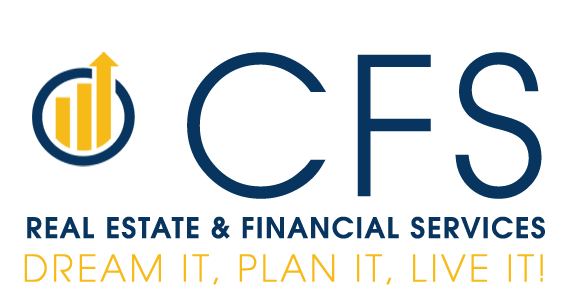In the dynamic world of real estate, effective property management stands as a cornerstone of maintaining and enhancing the value of residential investments. A residential property manager plays a crucial role by overseeing day-to-day operations, from tenant relations and lease management to maintenance and compliance with housing laws. This guide offers homeowners and investors insights into the substantial advantages of employing a skilled property manager, aiming to streamline operations, maximize rental income, and ensure the longevity of their property’s value. Whether you’re new to property investment or looking to improve your current management strategy, the following sections will equip you with essential knowledge to make informed decisions.
Table of Contents
Understanding the Role of a Residential Property Manager
A residential property manager is a professional tasked with overseeing the operational aspects of residential properties, ensuring that everything runs smoothly, tenants are satisfied, and the property remains lucrative and well-maintained. Their key responsibilities range from marketing rental properties and screening tenants to handling lease negotiations, collecting rent, and managing maintenance issues. Beyond these day-to-day tasks, residential property managers also devise long-term strategies to enhance property value through renovations, tenant retention policies, and efficient property budgeting.
The role of a residential property manager is pivotal in the real estate market, as they act as the intermediary between property owners and tenants, ensuring a balance that benefits all parties. This dynamic position not only demands a keen understanding of the real estate market and strong people skills but also requires a strategic mindset to foresee market trends and prepare the property to meet future demands. By effectively managing these elements, a residential property manager not only preserves but also enhances the property’s value, making their role indispensable in the landscape of real estate investment.
Benefits of Hiring a Residential Property Manager
Hiring a residential property manager brings a multitude of benefits, key among them being significant stress reduction for property owners. Managers expertly handle tenant issues, respond to emergencies, and oversee all maintenance needs, ensuring that no detail is overlooked. This not only alleviates the day-to-day pressures of property management but also ensures that tenants are satisfied and properties are well-maintained. Furthermore, residential property managers are instrumental in financial management and rent collection. They ensure that rent is collected in a timely manner and provide detailed financial reporting, which is crucial for maintaining a profitable property investment.
This financial stewardship extends to budget management and potentially increasing the return on investment over time. Additionally, property managers are well-versed in the latest landlord-tenant laws, regulations, and property codes, thus safeguarding owners from potential legal issues. Their expertise in legal compliance helps avoid costly fines and legal battles, which can be particularly daunting for property owners. Overall, the services of a residential property manager not only enhance the operational efficiency of a property but also provide peace of mind to owners by mitigating potential risks and maximizing profitability.
Qualities to Look for in a Residential Property Manager
When selecting a residential property manager, there are several essential qualities to consider that are crucial for effective management and optimal performance. First, professional experience is paramount; a manager’s background and credentials in property management provide a solid foundation for understanding the nuances of the market and handling complex situations. These credentials often include specific training and certifications that equip them with the necessary skills and knowledge. Next, communication skills are vital. A property manager must be able to convey information clearly and maintain open lines of communication with both property owners and tenants. Timely and effective communication prevents misunderstandings and ensures that all parties are informed about any issues or developments.
Additionally, organizational abilities are critical, especially when a manager is handling multiple properties. This involves prioritizing tasks, keeping detailed records, and managing time efficiently to ensure that all properties under their care are attended to properly and that operations run smoothly. Lastly, technological proficiency is increasingly important in today’s digital world. A proficient residential property manager should be adept at using property management software and tools. These technologies help streamline various management tasks such as tracking rent payments, managing tenant information, and handling maintenance requests, thereby increasing efficiency and reducing errors. Together, these qualities ensure that a property manager can effectively manage your investment and maximize its potential.
How to Find the Right Residential Property Manager
Finding the right residential property manager requires a methodical approach, starting with thorough research. Utilizing online platforms to search for candidates can yield a wealth of options. Reviewing client testimonials, ratings, and professional directories helps in creating a shortlist of potential managers with reputable standings. These resources offer insight into the manager’s performance history and customer satisfaction levels, which are critical in assessing their professionalism and effectiveness.
Once potential candidates are identified, the interview process becomes crucial. This stage is where property owners can delve deeper into each candidate’s experience, approach to problem-solving, and compatibility with their property management needs. Asking key questions about their management style, strategies for tenant retention, handling of emergencies, and ways they’ve improved property values in the past can reveal much about their capabilities and fit for your property. Additionally, it’s important to discuss how they handle communication and reporting to ensure their practices align with your expectations.
Equally important is checking references and backgrounds. Speaking with former clients and employers can provide real-world examples of how the property manager operates. When checking references, pay attention to comments on their reliability, responsiveness, and overall effectiveness. Also, be vigilant for red flags such as a history of legal disputes, frequent job changes without reasonable explanation, or negative feedback from previous tenants. These could indicate potential problems if you were to proceed with hiring them. Overall, a diligent and thorough vetting process is essential to ensure you select a residential property manager who will effectively look after your investment and align with your management goals.
Understanding the Cost of Hiring a Residential Property Manager
Understanding the costs of hiring a residential property manager is vital for maintaining the profitability of your property. Managers typically charge either a percentage of the monthly rent, usually 8% to 12%, or a flat fee, depending on their service model. Be aware of additional charges, such as vacancy fees when the property is empty, setup fees for starting the management contract, and maintenance markups. Evaluating the return on investment (ROI) is crucial; consider whether the benefits—like improved tenant retention, higher rents, and reduced maintenance costs—offset the management fees. Accurately weighing these costs against the potential increase in net income and property value will help you determine if hiring a property manager is financially beneficial.
The Impact of Effective Property Management on Property Value
Effective property management has a profound impact on the value of residential properties. Proactive management practices such as timely maintenance, aesthetic upgrades, and robust tenant relationships not only preserve but can significantly enhance property value. For instance, consistent upkeep and improvements—like updating fixtures or landscaping—make properties more appealing to current and prospective tenants, which can drive higher rental rates and reduce turnover. Even without specific case studies, a generalized scenario involves a property manager identifying an underutilized area of a property and transforming it into a desirable feature, such as a community garden or a modernized laundry facility, thereby increasing the property’s market appeal and rental value.
The long-term benefits to property value are equally significant. Effective property managers use strategic planning to forecast and mitigate potential issues, from major repairs to market fluctuations, ensuring the property remains competitive and lucrative over time. This not only sustains the property’s income stream but also contributes to a steady appreciation of its market value, making it a more attractive asset for potential future sale. In essence, the role of a residential property manager extends beyond mere maintenance; it involves a strategic enhancement of the property’s worth in the real estate market.
Tools and Resources for Residential Property Managers
Residential property managers leverage a variety of specialized tools and resources to enhance their efficiency and effectiveness. Popular property management software like Yardi, AppFolio, and Propertyware automate tasks such as tenant screening, lease management, and rent collection. Tools for maintenance management, like Buildium, and tenant screening services, such as TransUnion SmartMove, ensure smooth operations and reliable tenant selection. Communication tools like TenantCloud facilitate clear, ongoing communication with tenants and staff.
Additionally, membership in professional organizations like the National Association of Residential Property Managers (NARPM) and the Institute of Real Estate Management (IREM) provides valuable opportunities for ongoing education and networking. These organizations also offer certifications that help property managers stay abreast of industry trends and maintain a high standard of professionalism. Together, these resources play a crucial role in the effective management of residential properties.
Challenges Faced by Residential Property Managers
Residential property managers often encounter a variety of challenges that can impact their efficiency and effectiveness. Common issues include tenant disputes, which require tactful resolution skills to maintain harmony; maintenance problems, which demand swift action to prevent minor issues from escalating; and market fluctuations, which can affect rental pricing and occupancy rates. To overcome these challenges, managers can adopt several strategies such as implementing a clear communication protocol to address tenant concerns proactively, establishing a reliable network of contractors for maintenance emergencies, and using market analysis tools to adapt to economic changes effectively.
Moreover, the role of professional development cannot be overstated. Continuous education through courses, seminars, and certification programs helps managers stay updated with the latest industry practices and legal regulations. Additionally, being part of professional networks and associations provides support and insights from peers, which can be invaluable in navigating the complexities of property management. These resources equip managers with the knowledge and skills necessary to tackle day-to-day challenges and enhance their capacity to manage properties successfully.
Conclusion
In conclusion, the role of a residential property manager is multifaceted and essential for the smooth operation and profitability of real estate investments. From handling day-to-day tasks like tenant communications and maintenance issues to strategizing for long-term value enhancement, property managers play a critical role in the real estate sector. Hiring a knowledgeable and experienced residential property manager can lead to substantial benefits, including stress reduction, efficient financial management, legal compliance, and ultimately, an increase in property value.
If you’re considering professional management for your property or need more information about our property management services, we invite you to reach out for a consultation. Visit our contact page or call us directly to schedule a conversation about how we can tailor our services to meet your specific needs. Additionally, if you found this guide informative, please share it with others who might also benefit from learning about the advantages of hiring a residential property manager.

